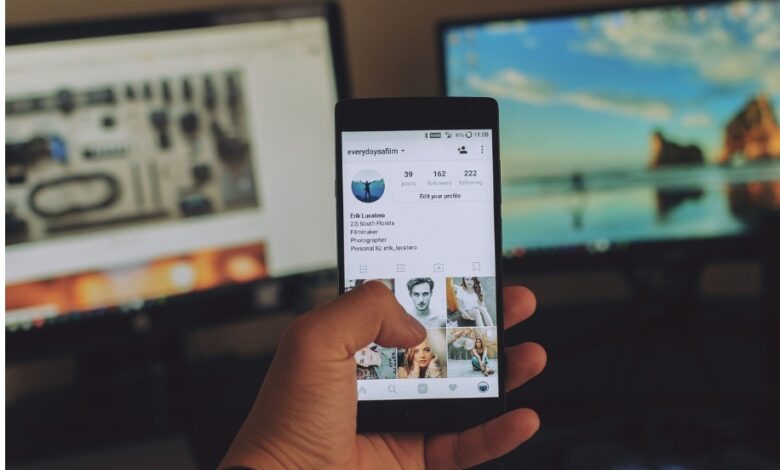How to Leverage Social Media Marketing for Small Business Success

Social media is an important part of small business growth in this digital age. Social media has billions of active users on many platforms, making it a powerful way to find new customers, interact with your audience, and eventually make sales. But for small businesses to use social media marketing effectively, they need to plan how they will use it. Here’s how to get the most out of social media to help your small business.
1. Write down your goals and who you want to reach.
You need to know what your business goals are before you start using social media to sell it. Do you want to raise knowledge of your brand, get more people to visit your website, get more leads, or make more sales? You can make sure your social media plan helps you reach your goals if you set clear, measurable ones.
Next, figure out who you want to reach. You can make content that speaks to your customers if you know who they are based on their demographics, hobbies, and behaviors. With this step, you can be sure that your marketing will reach the right people and not get lost in the noise of social media.
2. Pick the Correct Hosts
It’s important for small businesses to pick the right social media sites because not all of them are the same. It’s important to focus on platforms where people in your target group spend the most time. A quick look at the most famous platforms follows:
- Facebook is great for companies that want to reach a lot of people. It’s a great way to share news, events, and deals and build a community.
- Instagram is a visual tool that works well for businesses that have products or pictures of high quality. It works great for living, fashion, beauty, and food.
- Twitter is a good way to interact with people in real time and share quick updates, especially if your business deals with news or a lot of material.
- LinkedIn is a professional network that can help your brand become a star in its field. It works best for business-to-business (B2B) companies.
- TikTok is great for companies that want to reach younger people with creative, short videos.
- You can better use your time and money if you focus on the sites that work best for your audience, whether you’re marketing beauty products on jolantasspa.com or consulting services for retirement planning on executiveretirementplanning.ca.
3. Make content that is interesting and useful
Content is the most important part of any social media plan. But content that only talks about your goods or services won’t do. The goal is to make material that is interesting, useful, and connects with your audience on a deeper level. How to do it:
- You can help your audience solve problems or learn new things by giving them tips, how-to guides, and lessons.
- Entertaining Content: Add humor, behind-the-scenes posts, or fun tasks that make your brand seem more real to liven up your feed.
- User-Generated Content: Ask your customers to write about their experiences with your goods. User-generated content (UGC) makes things seem more real and helps people believe them.
- Interactive Content: To get people to connect with your content and take part, use polls, quizzes, or live Q&A sessions.
- To be consistent, make a content calendar to plan your posts ahead of time. To keep your page interesting and varied, try to include a mix of promotional, educational, and fun posts, tailored to your business needs, whether you’re selling UPS battery sales in Toronto or offering expert retirement advice.
4. Be smart about how you use paid advertising
Even though organic reach is important, it’s getting harder and harder to get without spending money on ads. Social media sites like Facebook, Instagram, and LinkedIn let you reach specific groups of people based on their location, hobbies, and behaviors through advertising.
Make ads with clear calls to action that are related to your business goals, like “Shop Now,” “Sign Up,” or “Learn More.” You can also retarget people who have connected with your website or social media pages, which will help them remember your brand.
If small businesses with limited funds plan their ads well, even a small amount of money spent on ads can bring in a lot of money.
5. Connect with your audience
There are two ways to use social media. Not only should you post information, but you should also interact with your audience. Quickly answer reviews, comments, and notes. Getting to know your followers and making friends with them can turn casual followers into loyal buyers.
Listen to what people are saying about your business and the industry you work in with social listening tools. You can show that you’re interested and proactive by reacting to trends or feedback. This will help you build a stronger relationship with your audience.
6. Keep track of your progress and make changes
The great thing about social media marketing is that it can be measured. You can use the platforms’ built-in tracking tools, like Facebook Insights or Instagram tracking, to see how well your ads and content are doing. Important indicators to keep an eye on are:
- This is the amount of likes, shares, comments, and saves that your posts get.
- Hits and Reach: How many different people see your material.
- Click-through rate, or CTR, is the number of times people actually click on your ads or links.
- Conversion rate: The share of people who do what you want them to do, like buy something.
- These measures will help you figure out what’s working and what’s not. Make the necessary changes to your plan by focusing more on tactics that are working and improving those that aren’t.
7. Use partnerships with influencers
For small companies, influencer marketing can make all the difference. Working with influencers, whether they’re micro-influencers in your area or experts in your field, can help your brand reach more people. People who follow influencers have built confidence and trust with them, which makes the suggestions they make very useful.
Figure out which influencers share the same ideals as your brand and have followers that are like the people you want to reach. Influencer partnerships can help your business get more attention and credibility, whether they review your product or make sponsored content.
To use social media marketing to grow your small business, you need a well-rounded plan that includes knowing your audience, making useful content, interacting with your community, and keeping track of your progress. You can build a strong online profile for your small business that helps it grow and be successful in the long term by using the right platforms and always making your strategy better.





